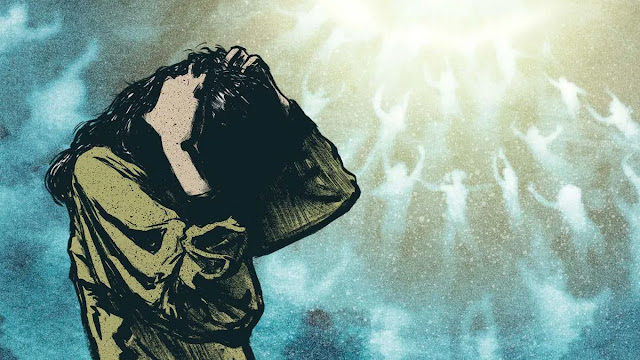By Pastor Benjamin Glaser - Posted at Thoughts From Parson Farms:
Good Morning,The next obvious question after speaking about the nature of life after death for the believer is what takes place next in the order of God’s promises. For Christians our true hope and the reason why we die in peace and comfort is because we understand, through the vow made to us in our Savior, that we will partake in the resurrection on the last day in our glorified state. Yet, as with the apostles who inquired to Jesus about the same thing we have wonderings in our heart about the how, when, where, etc... of this future blessing. Our Larger Catechism queries and responses today are going to help us understand how to properly consider the resurrection, how to live in light of that hope, and why it is we can trust in the word spoken by Christ to His Father in the high priestly prayer of John 17, namely v.24, “Father, I desire that they also whom You gave Me may be with Me where I am, that they may behold My glory which You have given Me; for You loved Me before the foundation of the world.”.
As we approach the Q/A for today let’s come with a mind to listen, be encouraged, as well as to be reproved a little for our attempts to peer behind the curtain. There are a couple of aspects of the Second Coming that are spoken about here that may fly in the face of things you have been told of the Millennium as well as the so-called “rapture”. While the Larger Catechism does not speak on them explicitly the content of the below will speak to them in a way which should help us better understand the Biblical case for why we as ARPs do not believe in the pre-trib, mid-trib, or post-trib conceptions of Christ’s return. Let’s go ahead and read them for ourselves:
Q. 87: What are we to believe concerning the resurrection?
A. We are to believe, that at the last day there shall be a general resurrection of the dead, both of the just and unjust: when they that are then found alive shall in a moment be changed; and the self-same bodies of the dead which were laid in the grave, being then again united to their souls forever, shall be raised up by the power of Christ. The bodies of the just, by the Spirit of Christ, and by virtue of his resurrection as their head, shall be raised in power, spiritual, incorruptible, and made like to his glorious body; and the bodies of the wicked shall be raised up in dishonor by him, as an offended judge.
